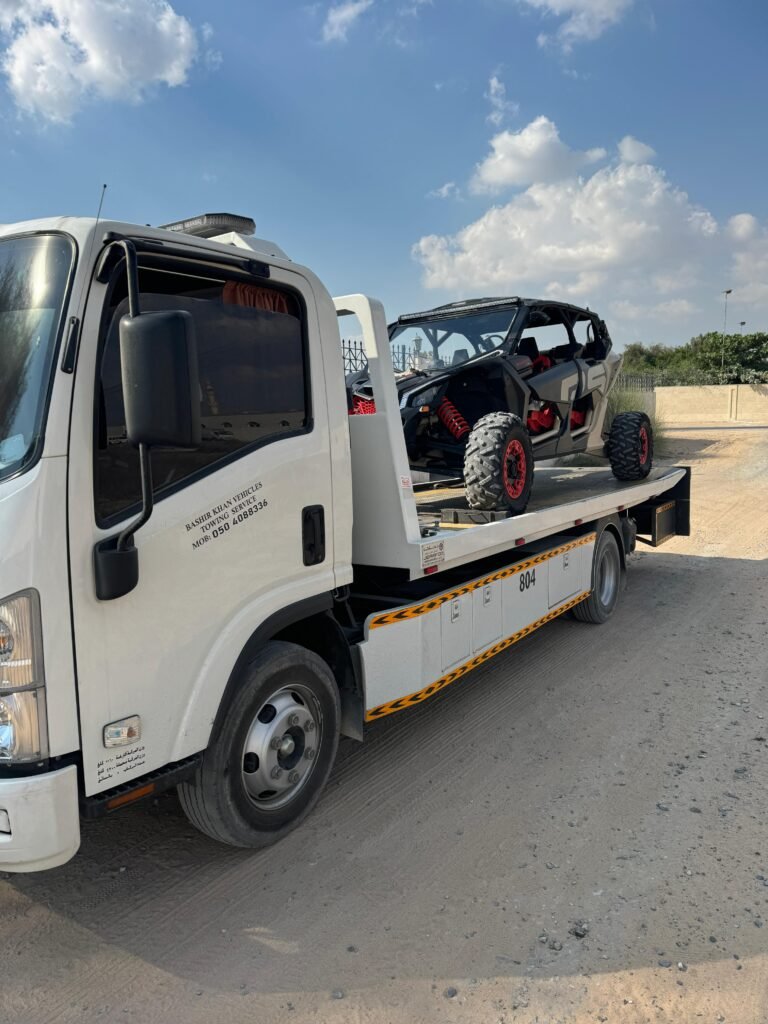Car Towing And Recovery Service Near Me
Car towing and recovery services are an essential part of modern transportation infrastructure. Whether you’re dealing with an unexpected breakdown, a road accident, or a vehicle stuck in an unmanageable location, these services provide the expertise and equipment needed to get your car back on track. This article explores everything you need to know about car towing and recovery services, their importance, and how to choose the right provider near you.
What Is a Car Towing and Recovery Service?
A car towing and recovery service involves moving a disabled, improperly parked, or stranded vehicle from one location to another. These services are usually equipped with specialized tools and vehicles, such as flatbed trucks, wheel-lift tow trucks, and integrated tow trucks, to handle various scenarios effectively.
Recovery services are a subset of towing, focusing on retrieving vehicles from challenging situations such as:
- Being stuck in mud, snow, or sand.
- Rolling into a ditch or ravine.
- Incidents involving severe accidents or overturned vehicles.
Why Are Towing and Recovery Services Important?
Life on the road is unpredictable. Even with meticulous maintenance, cars can break down or face issues due to accidents or external factors. Here’s why these services are invaluable:
1. Immediate Assistance
Towing and recovery services operate round-the-clock to provide assistance when you’re stranded on the road, ensuring safety and convenience.
2. Specialized Equipment
Professional towing companies use advanced equipment and techniques to safely handle your vehicle, preventing further damage.
3. Expertise
Trained professionals understand how to manage different types of vehicles and situations, from compact cars to heavy-duty trucks.
4. Legal Compliance
In some scenarios, such as accidents, towing services are required to clear the roadway quickly and adhere to local traffic regulations.
Types of Towing Services
Understanding the types of towing services available can help you choose the right one for your situation:
1. Flatbed Towing
Flatbed towing involves loading your vehicle onto a flat platform, which is the safest option for long-distance transportation or high-value vehicles.
2. Wheel-Lift Towing
This method uses a metal yoke to lift the front or rear wheels of the vehicle, commonly used for short distances or compact cars.
3. Heavy-Duty Towing
Heavy-duty towing services cater to large vehicles like trucks, buses, and RVs, requiring specialized equipment and expertise.
4. Motorcycle Towing
This service ensures safe transport of motorcycles using customized equipment.
5. Emergency Towing
Emergency towing is available 24/7 for situations like accidents, breakdowns, or illegal parking.
Recovery Services: Getting You Out of Tough Spots
Recovery services are crucial for extracting vehicles from challenging conditions. Some common scenarios include:
- Winching: Pulling a vehicle out of a ditch or soft terrain.
- Rollover Recovery: Uprighting overturned vehicles safely.
- Accident Recovery: Removing severely damaged vehicles from the scene of an accident.
How to Choose a Towing and Recovery Service Near You
When looking for a reliable service provider, consider the following factors:
1. Availability
Choose a provider that operates 24/7 and can respond quickly to emergencies.
2. Proximity
Selecting a service close to your location ensures faster response times and lower costs.
3. Equipment and Capabilities
Ensure the company has the appropriate equipment for your vehicle type and situation.
4. Licensing and Insurance
Verify that the service is licensed and insured to protect your vehicle and comply with legal requirements.
5. Pricing
Request transparent pricing upfront to avoid hidden fees or unexpected charges.
6. Reputation
Check reviews and ratings online to gauge the reliability and professionalism of the service provider.
Common Misconceptions About Towing Services
1. Towing Always Damages Vehicles
Modern towing methods are designed to protect vehicles. Flatbed towing, for instance, eliminates contact between the car’s wheels and the road.
2. Only Broken-Down Cars Need Towing
Towing services also help with relocating improperly parked vehicles, transporting classic cars, or moving vehicles for repairs.
3. Towing Is Always Expensive
Costs vary based on distance, vehicle type, and complexity of the situation. Many services offer affordable rates.
Tips for Handling Roadside Emergencies
- Stay Calm: Avoid panic and assess the situation.
- Move to Safety: If possible, move your vehicle to a safe location.
- Turn on Hazard Lights: Alert other drivers to your presence.
- Call for Help: Contact a reputable towing service near you.
- Provide Clear Information: Describe your location and vehicle type to the towing company.Car recovery is an essential service for drivers who encounter unexpected issues on the road. Whether it’s a mechanical failure, an accident, or running out of fuel, car recovery ensures you and your vehicle are safely transported to your destination or a repair facility. In this article, we’ll explore the various aspects of car recovery, its importance, and how to choose the right service provider.
What is Car Recovery?
Car recovery refers to the process of retrieving and transporting a disabled or immobilized vehicle. This service typically includes:
- Towing Services: Moving vehicles that are unable to drive due to mechanical issues or accidents.
- Roadside Assistance: Providing immediate help for minor problems such as flat tires, dead batteries, or empty fuel tanks.
- Accident Recovery: Safely removing vehicles from accident scenes to prevent further damage or road obstruction.
- Off-Road Recovery: Assisting vehicles stuck in mud, sand, or other off-road terrains.
Common Reasons for Car Recovery
- Mechanical Failures: Engine problems, transmission issues, or overheating can leave a vehicle stranded.
- Flat Tires: Without a spare tire or necessary tools, a flat tire requires professional help.
- Battery Problems: A dead or discharged battery often necessitates a jump start or replacement.
- Accidents: Collisions may render a vehicle undrivable, requiring recovery to a garage or repair center.
- Fuel Issues: Running out of fuel or using the wrong type can immobilize a car.
- Off-Road Situations: Getting stuck in snow, mud, or sand is common in rural or adventurous driving conditions.
Types of Car Recovery Vehicles
Car recovery involves specialized vehicles designed for different scenarios:
- Flatbed Trucks: Ideal for transporting damaged vehicles securely without additional wear and tear.
- Wheel-Lift Tow Trucks: Economical for short distances, these trucks lift one axle of the car for towing.
- Integrated Tow Trucks: Equipped for heavy-duty towing, often used for large vehicles like buses or trucks.
- Winch Trucks: Designed for off-road recoveries, winch trucks pull vehicles out of ditches or rugged terrains.
Choosing a Reliable Car Recovery Service
When selecting a car recovery service, consider the following factors:
- Availability: Choose a service that operates 24/7 to ensure help is always accessible.
- Coverage Area: Ensure the provider covers the region you frequently travel in.
- Response Time: Quick response times are crucial in emergencies.
- Service Options: Look for comprehensive services, including roadside assistance and accident recovery.
- Pricing: Transparent pricing with no hidden fees is essential for trustworthiness.
- Reputation: Read reviews and ask for recommendations to find a reliable provider.
Preventing the Need for Recovery
While car recovery services are invaluable, prevention is always better than cure. Here are some tips to reduce the likelihood of needing recovery:
- Regular Maintenance: Keep up with scheduled vehicle maintenance to address potential issues early.
- Carry Essentials: A spare tire, jack, jumper cables, and basic tools can help in minor emergencies.
- Monitor Fuel Levels: Avoid running low on fuel, especially in remote areas.
- Plan Ahead: Be cautious when driving in challenging weather or off-road conditions.
- Emergency Kit: Include items such as a flashlight, first-aid kit, and reflective triangles in your vehicle.

